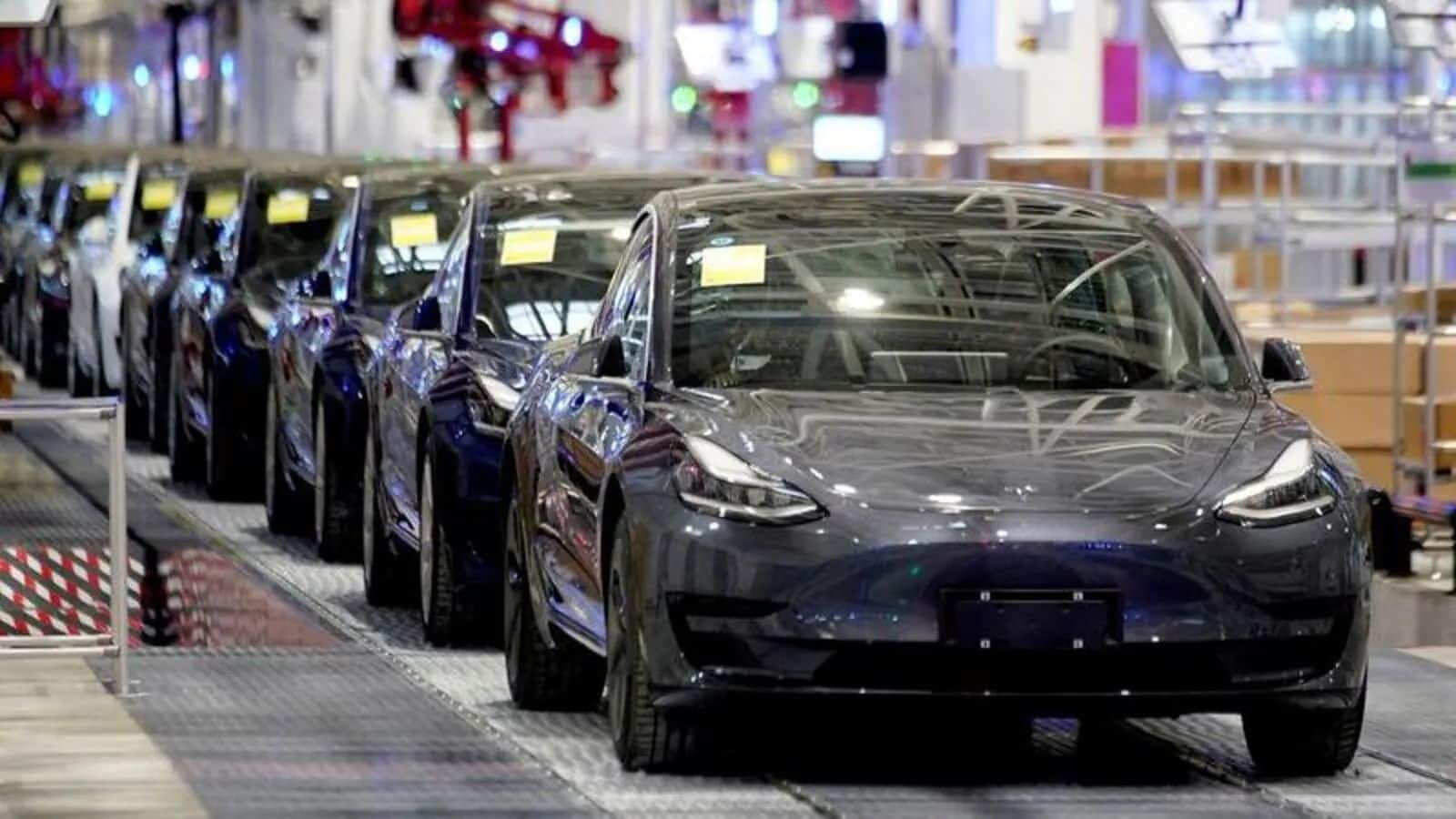
Tesla's Q1 sales drop amidst intensifying global competition
What's the story
Tesla experienced a significant decrease in sales during the first quarter of 2024, with global competition intensifying and the growth rate of the electric vehicle (EV) market slowing down. From January to March, the Elon Musk-led company delivered 386,810 vehicles worldwide, marking a nearly 9% drop compared to the same period last year. This figure fell short of Wall Street expectations by over 15%, as analysts had predicted Tesla would deliver around 457,000 vehicles.
Contributing factors
Factors contributing to Tesla's sales downturn
Several factors have contributed to Tesla's sales decline, including the slow rollout of an updated Model 3 sedan at the company's Fremont factory in California. Additionally, plant closures due to shipping disruptions in the Red Sea and a fire incident that affected power supply at its German factory also played a role. Earlier this year, Tesla had predicted "notably lower" sales growth due to transitioning between two major growth phases.
Analyst reactions
Analysts react to Tesla's disappointing sales figures
Analyst Dan Ives from Wedbush referred to Tesla's sales figures as "an unmitigated disaster" and emphasized that CEO Musk needs to steer the company back on track. Despite the disappointing results, Ives maintained his "outperform" rating for Tesla but reduced his one-year price target from $315 to $300. Citi Analyst Itay Michaeli also revised his expectations for Tesla's quarterly earnings, lowering the full-year 2024 earnings per share estimate to $2.71 from $2.78.
Price reductions
Tesla's price cuts impact profit margins, stir investor concern
Tesla's decision to significantly reduce prices has impacted its profit margins and raised concerns among investors. The company slashed prices by up to $20,000 for some models last year and temporarily reduced the price of the Model Y by $1,000 in March. Analysts had expected the average selling price for the Model Y to be $41,000 last quarter, which is $5,000 lower than a year ago and $15,000 less than its peak in June 2022.
Market challenges
Tesla's struggles in the US and China markets
The slowdown in the US electric vehicle market, which grew 47% last year but saw growth taper off toward the end of the year, has also impacted Tesla's sales. In China, one of Tesla's key markets, the company is struggling to keep up with BYD, which became the world's top-selling EV manufacturer at the end of last year. Despite these challenges, Tesla managed to reclaim its global EV sales lead from BYD this quarter.